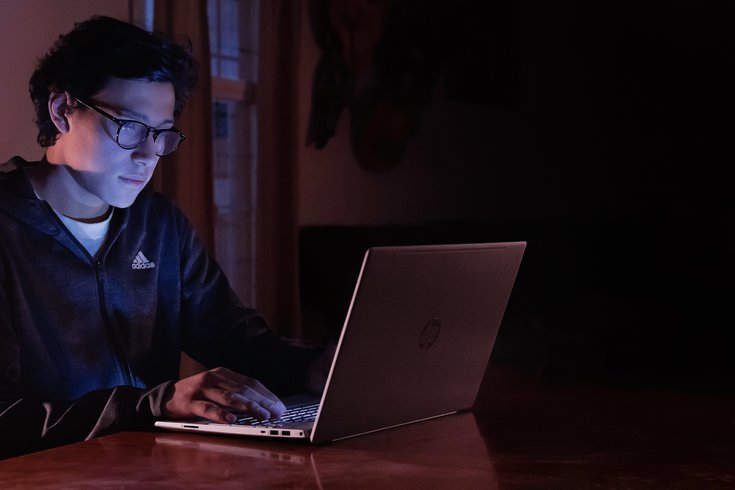
August 18, 2023
 Alan Navarro/Unsplash
Alan Navarro/Unsplash
Blue-light glasses may not reduce eye strain or improve sleep quality, according to researchers at the University of Melbourne.
Blue-light glasses have been recommended by eyewear companies and prescribed by optometrists since the early 2000s as a way to ward off visual fatigue from excessive computer use. But they may not make much of a difference in reducing eye strain or improving sleep quality, according to a recent study.
Researchers at the University of Melbourne analyzed the results of 17 clinical trials held in six countries. In findings published on Thursday, researchers said it was unclear whether wearing blue-light glasses had any impact on vision quality or sleep quality, despite those being major selling points used by eyewear companies marketing the glasses.
The number of participants in each trial ranged from five to 156, and the period of time over which the glasses were assessed ranged from less than one day to five weeks. Researchers said that only three of the trials reported a significant difference in eye strain, but they had short time frames. Laura Downie, an assistant professor in optometry and vision science at the University of Melbourne and the lead author of the study, said researchers were unable to determine the long-term impacts of blue-light glasses on retinal health, sleep quality or eye strain.
"There is still further research that needs to be done, but based on what we have, there is likely no advantage to using those glasses to reduce digital eye strain," Downie told NBC News.
Blue light has shorter wavelengths than other colors in the visible light spectrum, like red and green. This is largely why people have worried about its effect on the eyes, as short-wavelength light is easily absorbed by the retina's photoreceptive cells, according to the Washington Post.
But digital eye strain is not caused by blue light, according to the American Academy of Ophthalmology. Rather, it's the way that people use devices that cause or prolong eye strain, including using screens too close or far away from the face, poor lighting, poor posture and glare from the screens.
When it comes to sleep quality, almost all research conducted on the connections between blue-light glasses and sleep have been done on specific populations, like pregnant people or those with mental health conditions, NBC News reported.
The idea that reducing blue light helps with sleep stems from research about the sun's impact on the body's circadian rhythm. While exposure to blue light before bed may mess with sleep quality, most conducted research has been on animals rather than humans.
"The amount of blue light our eyes receive from artificial sources, such as computer screens, is about a thousandth of what we get from natural daylight," said Dr. Sumeer Singh, a postdoctoral research fellow at the University of Melbourne and an author of the study. "It's also worth bearing in mind that blue light filtering lenses typically filter about 10-25% of blue light, depending on the specific product. Filtering out higher levels of blue light would require the lenses to have an obvious amber tint, which would have a substantial effect on color perception."
While blue-light glasses may not be the most beneficial aid for digital eye strain or sleep quality, people can improve their symptoms and reduce visual fatigue in other ways. The AAO recommends people take frequent breaks from using devices, use artificial tears or eye drops to lubricate the eyes, reduce screen brightness and wear eyeglasses, rather than contact lenses, when using screens.
Staying away from cell phones and devices before bed can improve sleep quality, not just by reducing the amount of blue light exposure but also by limiting the amount of mental stimulation that comes from scrolling on social media. Adopting healthy sleep habits, like keeping a regular sleep schedule or keeping electronics outside of the bedroom, can help improve sleep quality, according to the Sleep Foundation.